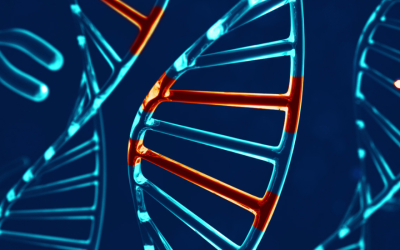
Gut health may affect your risk of preeclampsia
Gut Dysbiosis Promotes Preeclampsia by Regulating Macrophages and Trophoblasts
Over the last few decades, research has exploded on the “gut microbiome,” meaning what types of (and how many) bacteria, viruses, and other microorganisms are living in the intestines. In non-pregnant populations, links have been found between the gut microbiome and many diseases such as Alzheimer’s disease, cardiovascular disease, and metabolic conditions like diabetes and obesity. Researchers on this paper did several studies to try to better understand the role of a pregnant person’s gut microbiome in how likely they were to develop preeclampsia. In a stool analysis collected in late pregnancy, results showed that the gut microbiome from stool samples of patients with preeclampsia were significantly different from those who did not have preeclampsia. Researchers then took those stool samples and transplanted them into rats with pre-existing preeclampsia (this is called a fecal transplant). The rats with the transplanted stool from the patients with preeclampsia went on to have worse preeclampsia symptoms during their pregnancy. The rats with stool from patients without preeclampsia showed less severe preeclampsia symptoms.
Take home message: This group of studies supports the role of our gut microbiome on preeclampsia risk. Future studies may explore changing the gut microbiome (for example by antibiotics, probiotics, or prebiotics) to help prevent preeclampsia.
Link: https://www.ahajournals.org/doi/abs/10.1161/CIRCRESAHA.122.320771
Citation: Jin J, Gao L, Zou X, Zhang Y, Zheng Z, Zhang X, Li J, Tian Z, Wang X, Gu J, Zhang C, Wu T, Wang Z, Zhang Q. Gut Dysbiosis Promotes Preeclampsia by Regulating Macrophages and Trophoblasts. Circ Res. 2022 Sep 2;131(6):492-506. doi: 10.1161/CIRCRESAHA.122.320771. Epub 2022 Aug 11. PMID: 35950704.
About Research Roundup
Each quarter, our team of researchers reviews the most current studies related to hypertensive disorders of pregnancy and selects those studies they feel will be of greatest interest to our community to summarize.
Special thanks to our volunteer research team, who under the leadership of Dr. Elizabeth Sutton, make Research Roundup possible: Alisse Hauspurg, MD Felicia LeMoine, and MD Jenny Sones, PhD, DVM.
Related Articles

While the foundations of preeclampsia are believed to develop in the early stages of pregnancy, the current screening process occurs at 20 weeks, nearly half way through the second trimester. When cli...

Research suggests that preeclampsia may develop in a two-stage process. The first stage involves challenges to the way that the placenta implants and grows. In a normal pregnancy, a type of placental...

The risk of developing hypertension and cardiovascular disease (CVD) significantly increases for patients who experience gestational hypertension, preeclampsia, or other hypertensive disorders of preg...

Cerebral complications from preeclampsia and eclampsia are a major cause of maternal mortality and long-term neurological impact. Understanding pathophysiology (changes in how the body works as a resu...

A new research study suggests that blood pressure changes during the first 20 weeks of pregnancy—called blood pressure trajectories—may give providers a peek at a woman’s risk of dev...

